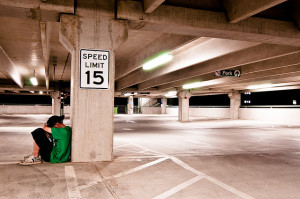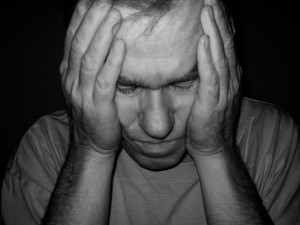Article Contributed By: Crystal Karges, MS, RDN, IBCLC for Addiction Hope
 Do you find yourself frequently reaching for the snooze button on your alarm each morning? Or perhaps, you struggle with staying alert throughout the day, nodding off at your desk or in your car while driving? If you find it difficult to obtain enough sleep at night, you are not alone.
Do you find yourself frequently reaching for the snooze button on your alarm each morning? Or perhaps, you struggle with staying alert throughout the day, nodding off at your desk or in your car while driving? If you find it difficult to obtain enough sleep at night, you are not alone.
Countless of Americans across our nation suffer with insufficient sleep, with more than one-quarter of the U.S. population reporting inadequate sleep, and nearly ten percent experiencing chronic insomnia [1]. In a 2005 National Sleep Foundation (NSF) Poll, more than half of the participants reported at least one symptom of insomnia a few nights per week for the past year, including:
- Waking up too early and not being able to fall back asleep
- Waking up feeling un-refreshed
- Having difficulty falling asleep
- Waking up frequently during the night [2]
Over thirty percent of participants reported experiencing at least one of these symptoms EVERY night in the past year, with a greater percentage of women reporting insomnia symptoms compared to men [2].
The Definition of Insomnia
Insomnia is typically defined by its duration, varying from acute to chronic. Acute insomnia, which occurs for short term, is sleep disruption that generally results from external stressors, such as anxiety over stressful circumstances at work, strain in a relationship, etc.
In contrast, chronic insomnia is disrupted sleep that occurs at least three nights per week and lasts at least three months [2]. Chronic insomnia may be the result of several factors, including:
- Psychiatric issues
- Other medical conditions or health complications
- Changes in the environment
- Influence of certain medications or drugs
The Impact of Insomnia
Insufficient sleep can dramatically impact a person’s health and well-being, and is increasingly becoming a public health epidemic. Unfortunately, sleep insufficiency has been linked to industrial disasters, motor vehicle crashes, and medical/occupational errors [3].
In addition, individuals with sleep disorders or insufficient sleep are at greater risk for chronic diseases, such as obesity, depression, and hypertension, as well as an overall decreased competency and quality of life [3].
How Can Sleep Aids Help?
 With an increasing number of Americans struggling with varying sleep disorders, a correlating number of individuals are turning to sleep aids and medications to achieve adequate sleep. The drug Zolpidem, marketed by the brand name of Ambien, is a prescription medication often used for the treatment of insomnia [4].
With an increasing number of Americans struggling with varying sleep disorders, a correlating number of individuals are turning to sleep aids and medications to achieve adequate sleep. The drug Zolpidem, marketed by the brand name of Ambien, is a prescription medication often used for the treatment of insomnia [4].
Due to the frequency with which this medication has been prescribed and used, the cases of Ambien abuse have also risen. According to a National Survey on Drug Use and Health, over 500,000 individuals reported abuse of Ambien, with the majority of Ambien abusers being 18 years old or younger [5].
While Ambien is recommended as a short term treatment for insomnia, many people will not take the drug as instructed, often consuming greater dosages than prescribed or for longer than is advisable. This will often lead to drug tolerance and a physical/psychological dependence on the drug.
Excessive use of Ambien can result in severe complications and adverse consequences, including but not limited to the following:
- Excessive drowsiness
- Inability to concentrate or focus
- Lack of motor function and coordination
- Unable to initiate sleep without taking the drug
- Experiencing mood swings or mood disorders
- Shifts in personality
- Compulsively using the drug despite medical necessity
- Increased fatigue
- Psychological symptoms, such as anxiety, depression, or suicidal ideations
- Inability to carry out normal daily functions in a professional and social environment
If left untreated, the abuse of Ambien can lead to a vicious cycle of addiction, which can rapidly consume and deteriorate men or women in every aspect of their lives.
Alternative Treatments for Insomnia
While sleep disorders are prevalent and something that many people struggle with on a daily basis, it is important to understand that sleep medications are not the only solution to the problem.
In fact, many medications do not work at addressing the root cause of the disorder and typically only mask the symptoms.
If you are suffering with a sleep disorder, talk to your doctor about the possibility of working with a sleep specialist, who can help you identify ways in which you can improve your sleep hygiene and behaviors. There is hope for achieving restful sleep without the risk of becoming addicted to a sleep medication like Ambien.
References:
- Centers for Disease Control and Prevention, “Sleep Disorders”, http://www.cdc.gov/sleep/
- National Sleep Foundation, “Insomnia”, http://sleepfoundation.org/sleep-disorders-problems/insomnia
- Institute of Medicine. Sleep Disorders and Sleep Deprivation: An Unmet Public Health Problem. Washington, DC: The National Academies Press; 2006.
- Du B, Shan A, Zhang Y, Zhong X, Chen D, Cai K (2014). "Zolpidem Arouses Patients in Vegetative State After Brain Injury". The American Journal of the Medical Sciences 347 (3): 178–82. doi:10.1097/MAJ.0b013e318287c79c. PMID 23462249
- ProjectKnow, Understanding Addiction, “Zolpidem Addiction Treatment”, http://www.projectknow.com/research/zolpidem/
